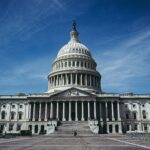Parental Politics
During the COVID-19 pandemic, a new interest group has come to the forefront of political discourse: parents. In many ways it’s been a perfect storm for parents. Mitigation measures have disproportionately impacted people with children due to mandated school closures. Those school closures resulted in the economic pressures that came with struggling to secure additional childcare or balancing employment while children are schooling from home. In addition, parents have been justifiably mortified as some children’s performance on academic metrics plummeted, symptoms of mental health challenges increase, and negative impacts on social skills have become apparent during the pandemic.
The bellwether race that has elevated the seriousness of the role that parent-issue centric campaigns can play in catapulting candidates to success or aiding in their destruction was Virginia’s governor race between now Gov. Glenn Younkin and Terry McAuliffe. Without a doubt, the initial pandemic fights over vaccine requirements in schools, masking requirements in schools, and even the fundamental questions of if school should be open at all paved the way for a galvanized constituency. Despite voters who cited education as their top issue supporting Terry McAuliffe by a whopping 33 percentage points in the September prior to the election, by Election Day, Younkin was leading by 9 points – an incredible 42 percentage point shift in Younkin’s favor. Other state and municipal races have seemed to indicate that the trend isn’t an isolated one – races for governors, mayors, city councilmembers, and school board directors all over the country, particularly in suburban areas, have shaken up the typical behaviors of some voters. In the New Jersey’s governor’s race, a recent Wall Street Journal article documented how an upper-middle class population in a northern New Jersey suburb went from a plus 12 percentage point district for Joe Biden in the presidential election to a plus 5 district for the Republican candidate Jack Ciattarelli. The article goes on to describe the experience of pro-choice, climate-conscious voters shifting from solid Democratic voters to the GOP almost exclusively due to the impact of the COVID-19 mitigation measures in schools and parental choice playing a bigger role in education policy.
However, as pandemic mitigations are lifted throughout the United States, new parental concerns about the way in which race, gender, and sexuality are discussed in the classroom have taken center stage. In many ways, this debate has been simmering under the surface of our civic fabric over the past decade, but the contemporary iteration of the public conversation about the proliferation of critical race theory-influenced curriculum in schools began in the summer of 2020 with the writings of Christopher Rufo. Rufo, initially covering the diversity trainings offered by the City of Seattle to its employees, began writing and speaking more about the impact of “wokeness” and “antiracism training” on bigger news outlets like Fox News. Soon after, Rufo’s message reached the White House and then President Donald Trump issued an executive order with the intention of stopping “’efforts to indoctrinate government employees with divisive and harmful sex- and race-based ideologies’.” The elevation of Rufo’s critiques to executive-level policy signaled a significant development in the fraught national conversations around racism and American history that had reached a new zenith after the death of George Floyd.
Simultaneously, another, less discussed conversation was developing in the states through the passing of legislation to teach LGBTQIA+ history in K-12 schools. The initial legislation passed in 2011 in California with the next crop of progressive states —like Illinois, Colorado, New Jersey, and Oregon—passed similar legislation in 2018 and 2019. The conversation took a significant turn when, on March 28th, Governor Ron DeSantis of Florida signed HB 1557, the “Parental Rights in Education Act,” into law. More widely known as the “Don’t Say Gay” bill by its critics, the Parental Rights in Education Act represents the first major legislative counter-offensive against the movement for greater inclusion of LGBTQIA+ identity discussions in school curriculum. The bill itself prohibits “classroom instruction by school personnel or third parties” discussing gender identity or sexual orientation at all in before fourth grade, and restricts the discussion of the topic in a way deemed to not be “age-appropriate or developmentally appropriate for students in accordance with state standards” for older grades. Despite strong public opposition by major corporate players like Walt Disney, polling found 61% of people supporting the legislation and only 26% opposed. More polling found that a majority of likely Democratic voters supported the measure, challenging traditional, partisan narratives around this type of legislation, emphasizing that parents as a constituency have realignment potential. After DeSantis signed the legislation, 12 other states have introduced similar legislation during the current legislative session.
Like with so many of the other idiosyncratic questions of our current political moment, predictions are perilous things to make. It’s much easier to be wrong than right. However, there is a clear sense that the pandemic has both accelerated and altered some of our political conversations in the country. With a full two and a half years of unprecedented civic upheaval, it’s difficult to imagine a country coming out of the other side unchanged. Parents, being at the front lines of the pandemic policies, are likely to come out a little different, too.




